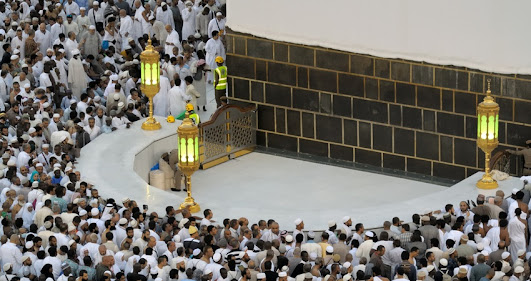If there is one thing I have learnt from life, it is that the means do not justify the ends. Since childhood, I observed my father who was vigilant to not break any rules as an expatriate worker in the UAE for 50+ consecutive years. I learnt that the laws of a society are made after considerable deliberation. Yes the are man made laws but a lot of work and consultantion goes to draft them. They are not perfect, but they are the best for that time for that place. By working within them we align with the natural processes of that society and live in peace and harmony with everyone. If we want to improve the society we work within the system to influence and change it for the better. Islamic laws are natural laws. There is tremendous flexibility in their scope and the way they can be implemented and exist within the system. As they are based on nature, practicing them sincerely within any system will influence the laws of any country and improve them naturally over time.
The important thing is that we change ourselves, and that in itself will change our enironment and societies positively. When Islam spread worldwide it worked within the exsiting pre-Islamic cultures to refine them to become the best versions of it. During a casual conversation in a recreation center with a Canadian who spent his working life in Japan I learned that when he goes on vacations in India he prefers to stay at hotels owned by Muslims as Islam places a lot of emphasis on hygiene. The essential Indian culture is the same for Muslims and non Muslims, but Islam filtered the mainstrem Indian society in many ways over the centuries.
I remember how my father criticized newcomers to UAE in their carelessness in breaking the country's regulations. Yet many do not cringe at breaking laws when we immigrate to the West while emulating the Western systems blindly. Realize, that every rule we break has an impact on how we live. In general, it makes us deviate with natural living in that society. The fact that immigration status is denied to us in a country means that it is in OUR benefit not to stay there illegally, not for the fear of legal punishment but because it will have a host of negative repercussions that are not good for us in many ways. They will complicate our life and circumstances. So if we are denied a privilege by law, it means that it is beneficial for us not to have it. We may like a thing which is bad for us and dislike a thing which is good for us. The laws have been made with much deliberation for everyone's benefit including our own. The means do not justify the end.
Unfortunately, we see the same "by hook or by crook" mentality in new migrants to the West that we observed in illegal residents in the UAE in our youth. The West is a place where it is easy to deviate from natural living if we deliberately go against conventional and natural principles. So if there is a natural principle that engaging in riba whether in the form of home mortgages, car loans, or student loans is not natural, then we say OK, there is good in that for our holistic development and it will help us develop ourselves and our families in the long run and we do not engage in it. It is better not to be "touched by madness" that the Quran describes the dealing with riba causes, such that its effects do not allow us to live naturally, by constantly improving ourselves and others. Rather it causes us to become cogs in the Western system, enhancing its extreme nature rahter than improving it through influence and personal example to a natural equilibrium.
For some improvement and self development is aided through marriage or active participation in a particular community. Whereas others might thrive, producing great legacy by not marrying even though it it the Sunnah. Perhaps if Imam An Nawwawi married he might not have produced such great gems through dilution of his vision and efforts. Every case is different. For some Muslims, marriage in the West is obligatory, for some it is mubah, and for some it might be better not to marry. Similary, for some Muslims in the West, staying within a particular community might be obligatory, while for some interacting with a whole range of communities might be more beneficial to realize their unique vision. In any case, the important thing is to do the right thing which is uniquely right for the individual. without going against any conventional or natural principle. If we are violating any such principles, it is always possible to go back and correct our mistakes and build again to do things right, even though the matter might not be to our liking. If it means going back to our home countries because we are unable to upkeep conventional or natural principles, so be it, as the means do not justify the end. If it means to change our financial ways, it is always possible to reset to live more naturally in a society which has many benefits.





